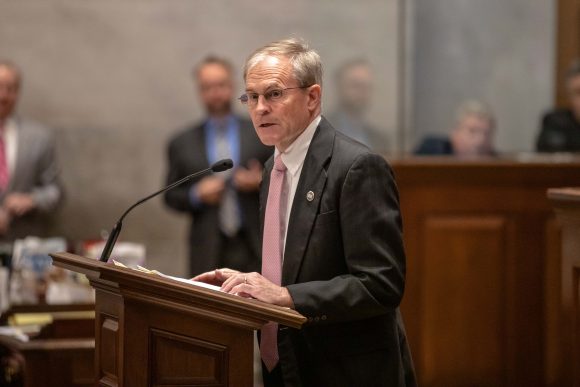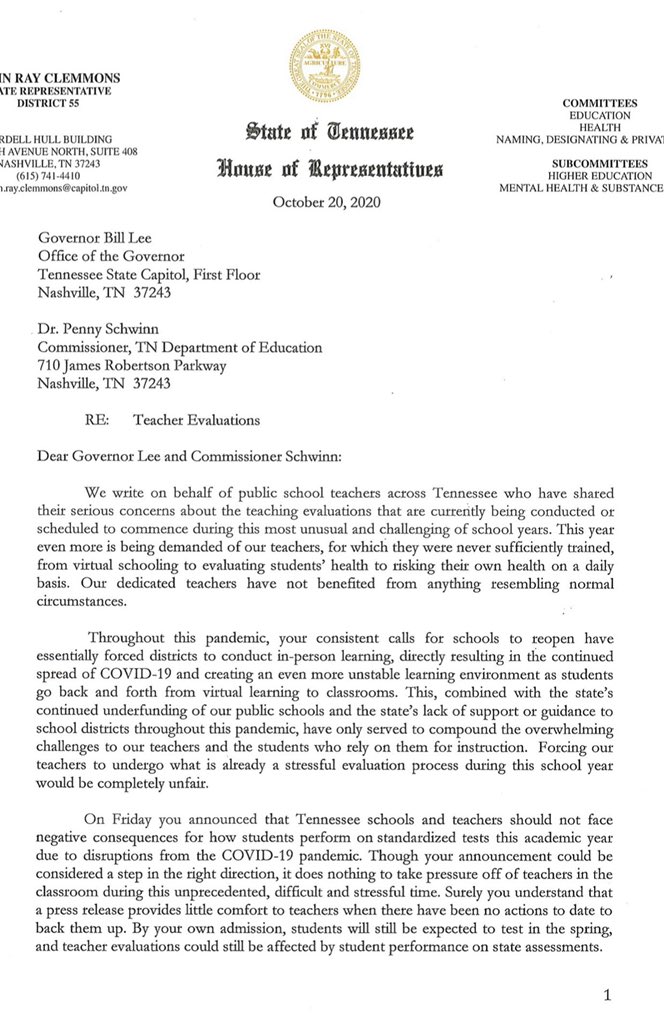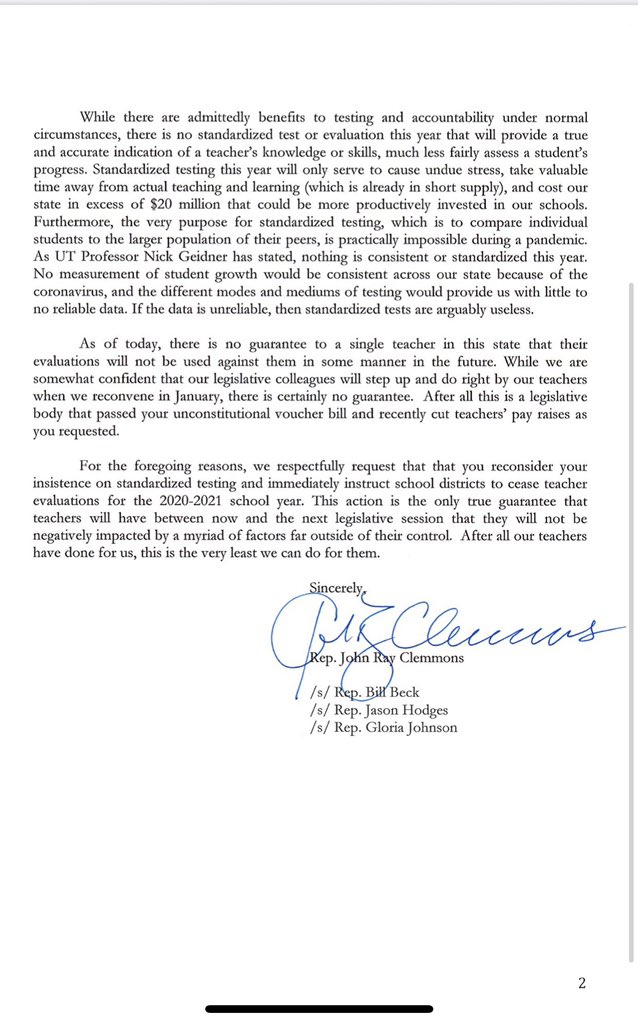The Tennessee Education Association has sent a letter regarding concerns with the state’s COVID data relative to public schools to Gov. Bill Lee and included Commissioner of Health Lisa Piercey and Commissioner of Education Penny Schwinn.
Here’s that letter:
Over the past month, TEA has conducted a continuous review of local COVID-19 infection data of educators and students. According to the data, COVID active case rates of school staff are consistently higher—sometimes double—the rates of the communities those schools serve. The data indicate in-person instruction increases infection risk and that Tennessee educators will become ill at a far higher rate than the state’s general population. TEA calls on your administration to immediately
• call for a mask mandate for all school staff and students;
• publish firm state guidance for infection thresholds for school closure;
• provide substantial emergency state school funding for high quality PPEs, updated HVAC and air quality systems, and additional cleaning services;
• enforce all CDC guidelines for school operations;
• fund extended educator sick leave for active cases or quarantines;
• issue guidance to prioritize assigning educators with underlying conditions to remote instruction; • provide additional health benefits and coverage for staff who have been infected; and • provide hazardous duty pay for all staff directly involved with students.
Another state action that should be immediately taken is to either improve the data of the Department of Education statewide COVID dashboard or take down the website. It is clear there are significant errors in the SDE dashboard; gross underreporting is apparent when the student infection numbers are cross-referenced with concurrent Department of Health cases for school-age children. The SDE should require accurate LEA reporting of student/staff COVID cases or stop publishing flawed datasets.
It was demonstrably wrong SDE reporting that led TEA to review six school systems who have local COVID dashboards and publish timely and accurate infection data for students and staff. These systems teach approximately one-quarter of all Tennessee students, a strong sample size providing statewide insights. TEA used this local data to determine highly elevated infection rates among school staff compared to the communities where they serve. The state should require every school system to maintain accurate local COVID dashboards for the remainder of the pandemic.
The importance of in-person instruction to the academic and emotional wellbeing of students is undisputed; however, the demonstrably higher infection rate of Tennessee school staff cannot be ignored. There are actions your administration can and must take to reduce infections until a vaccine can be widely distributed.

For more on education politics and policy in Tennessee, follow @TNEdReport
Your support – $5 or more – makes publishing education news possible.









